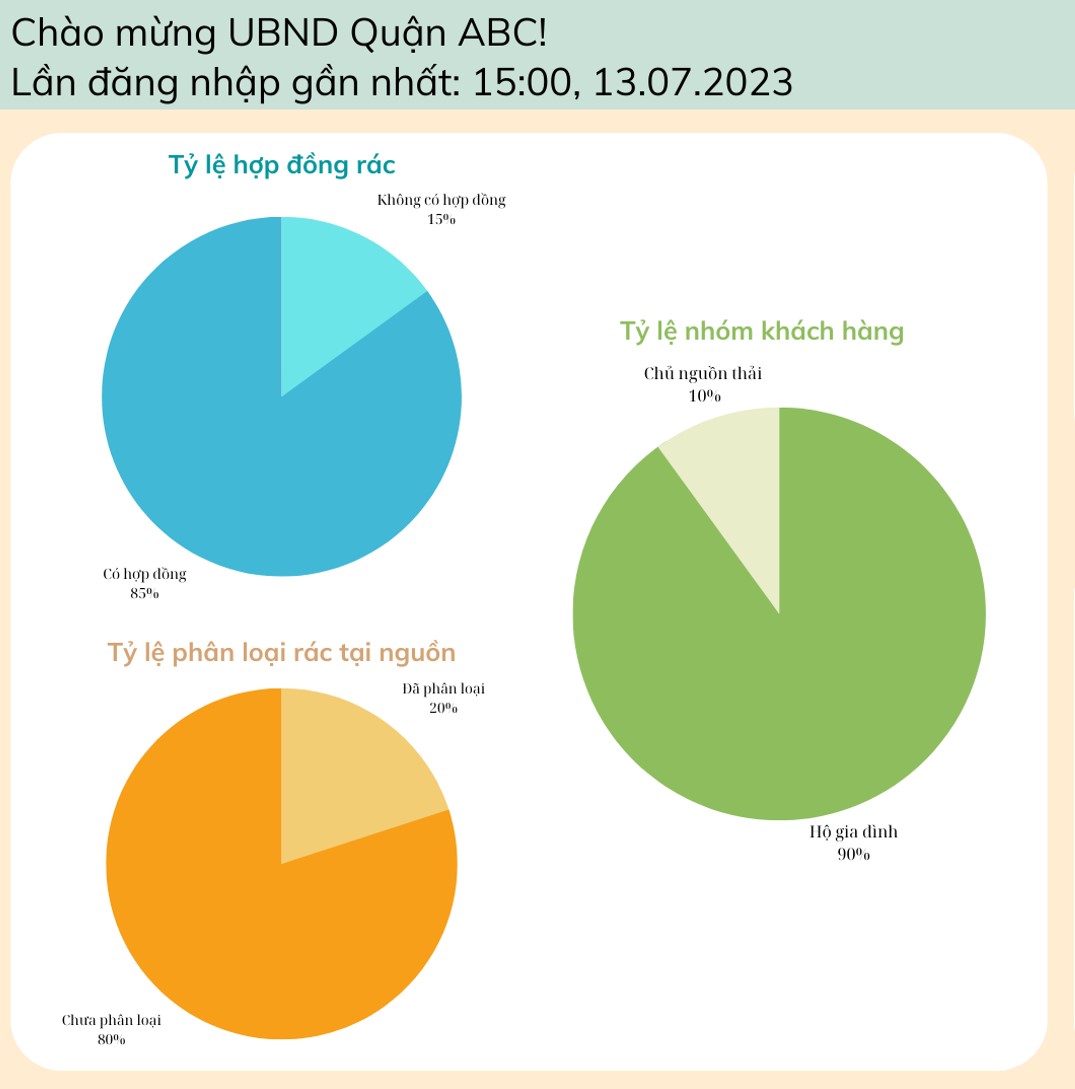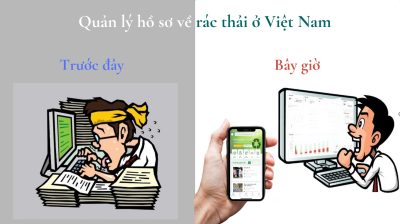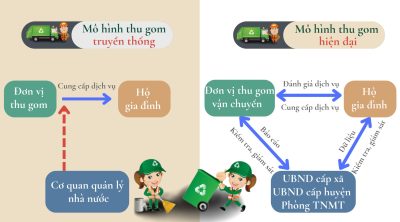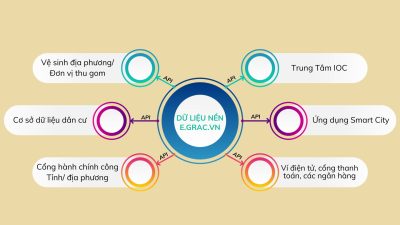Grac and the Digital Revolution in Waste Management

Grac and the Digital Revolution in Waste Management, Grac leverages digital technology to change traditional waste management and change the way Vietnamese people view waste.
In the context of rapid urbanization and increasing consumption, the issue of waste management has become more urgent than ever. In Vietnam, a remarkable initiative has emerged, called Grac – a digital technology application that aims to change the traditional way of waste management.
Grac Cloud – Based’s main customers are local authorities and waste collection companies, recycling companies. Grac provides a sustainable and comprehensive solution for waste development. Changing the way stakeholders view waste with practical actions. Grac challenges the traditional waste management model.
Grac manages waste with the motto Zero Truck, Zero Landfill and Zero Waste Cities. That is, waste management with a model of owning no garbage trucks, no landfills and moving towards zero waste cities.
- Introduction to Grac
Grac, short for “Gathering”, is a software developed to digitize the waste management network and make online payments. Launched in 2018, Grac is not only a smart application but also part of the national strategy to achieve the goal of managing 100% of household waste in Vietnam by 2025.
- Mission and Vision
Grac’s mission is to become the leading management software tool, helping cities move towards zero emissions for household solid waste. With the slogan “Zero Waste Cities”, Grac not only emphasizes waste management but also aims to raise public awareness about the environment and climate change.
- Technology and Functions
Grac applies Big Data and Cloud Server technology to create a centralized, multi-platform and continuously synchronized data system. This application allows people to look up monthly garbage collection fees, contact garbage collectors directly, and even pay for garbage online through payment gateways such as Momo, 34 banks, and 250,000 garbage collection points nationwide.
- Social Meaning and Impact
Grac not only reduces waste treatment costs for provinces and cities but also creates additional income for scrap collectors and waste collection forces. In addition, the application of 4.0 technology in smart waste management also contributes to reducing waste for landfills and urban waste treatment plants.
Grac is paving a new path for waste management in Vietnam, promoting digital transformation and creating a cleaner, greener living environment for the future. With the support of technology, Grac promises to be an indispensable part in the fight against waste, while contributing to the building of a sustainable Vietnam.
Grac uses centralized data management SaaS technology and Big Data for comprehensive waste management
Grac operates on the SaaS platform, which stands for “Software as a Service”, which is a model of distributing software over the internet without requiring direct installation on personal computers. Users can access and use the software via a web browser or mobile application.
Grac SaaS ERP is an ERP (Enterprise Resource Planning) system provided as SaaS, which digitizes the database of households, waste generators, waste collectors, transporters and waste treatment units. This system replaces traditional waste management methods and brings many benefits such as saving on hardware installation costs, maintenance fees and periodic upgrades.
SaaS ERP enables waste management organizations to better control business processes, manage assets and resources, optimize asset utilization, and improve customer and contract management. This enables waste management organizations to become more efficient and flexible in their operations from collection to transportation and final disposal.
The technology analyzes data on different types of waste and proposes solutions for smart urban management. Grac pushes the data through local smart operation centers.
How Grac benefits the environment
The Grac application brings many environmental benefits to Vietnam, especially in reducing plastic waste and promoting recycling. Here are some specific benefits:
- Reduce Plastic Pollution Grac encourages users to reduce consumption of single-use plastic products and increase recycling, helping to reduce the amount of plastic waste in the environment.
- Protecting Natural Resources Recycling waste through Grac reduces the need to mine new resources, thereby protecting natural resources.
- Reducing Greenhouse Gas Emissions Reducing consumption and recycling waste through Grac also contributes to reducing CO2 emissions, thereby minimizing the greenhouse effect. Grac helps cities and partners reduce up to 1 million tons of greenhouse gases per year in Vietnam.
- Raising Environmental Awareness and Responsibility Grac contributes to raising consumers’ awareness and responsibility towards the environment, encouraging them to classify waste at source and participate in plastic waste collection and recycling programs.
- Support Effective Waste Management Grac creates a waste management system that includes the local community, helping to manage waste effectively and sustainably.
Grac Education is a revolution in environmental protection propaganda in Vietnam. Propaganda contents include:
- Waste sorting at source
- Climate change
- Environmental protection for wastewater, exhaust gas, hazardous waste, dangerous chemicals, etc.
Grac Education system connects with people via App, Email, garbage bills and synchronizes with data of other software.
What achievements did Grac achieve in 2023?
- Grac is helping state management agencies and waste collection companies manage 1 million waste generators (including households and businesses), expected to increase from 3-5 million waste generators in 2024.
- Grac has worked with agencies of the Ministry of Natural Resources and Environment and more than 20 provinces and cities in 2023 and expects more than 50% of provinces and cities in 2024. Of which, Ho Chi Minh City is the largest area that Grac has digitized.
- Grac has successfully piloted the Grac Green Point model applying sustainable information technology to the collection of plastic waste and recyclable waste.
- Grac has achieved ISO 9001:2015 and ISO 14001:2015 certifications
- Grac won first prize in the Greentech Competition – Initiatives, solutions, models for reducing and treating domestic solid waste in 20201. This is a remarkable achievement, demonstrating the recognition of Grac’s efforts and effectiveness in solving waste-related problems in Vietnam. This also contributes to affirming Grac’s position in the field of smart and sustainable waste management.
- Grac connects with e-wallets such as Momo, Payoo,… to help people pay for garbage through most e-wallets and more than 34 agent banks.
Benefits that Grac brings to stakeholders
Benefits of Grac for Local Authorities: Grac provides an efficient waste management solution that helps local authorities reduce costs and increase visibility into waste collection. The software allows for tracking of contract numbers, management of collection units and collectors, as well as complaint management and collection scheduling.
Benefits for traditional waste collection companies: Waste collection companies can leverage Grac to manage households and waste generators, save operating costs and optimize workflows. The software helps automate and streamline processes from collection to financial management, helping businesses operate more efficiently.
Benefits for residents: Residents can use Grac to look up monthly garbage collection fees, contact garbage collectors directly, and even pay for garbage online. In addition, the application also supports residents in sorting and recycling garbage, contributing to building a green and sustainable living environment.
Has Grac ever encountered any difficulties during implementation?
During the implementation process, Grac encountered some difficulties, especially in sorting waste at source. Below are some of the challenges Grac faced:
- Collection Equipment and Vehicles : Lack of appropriate collection equipment and vehicles for segregated waste is a hindrance.
- Implementation Costs : The high cost of waste separation at source is also a significant barrier.
- Propaganda and Implementation : Propaganda and implementation work is not yet synchronous, leading to many households and waste source owners not proactively classifying waste.
- Investment Preparation : Lack of investment preparation in equipment after waste is sorted is also a problem.
- Waste Treatment Process and Technology : Inappropriate and unsynchronized waste treatment processes and technology is another challenge.
- Background Data and Policy : The lack of background data to make decisions and policies on waste separation at source suitable for each locality also causes difficulties.
- Digital Transformation : Not applying digital transformation to connect stakeholders and integrate overall solutions is also a limitation.
Has Grac ever had trouble attracting users?
Yes, Grac has had some difficulties in attracting users. Some of the key challenges include:
- Public Awareness : Changing habits and awareness about smart waste management can take time and effort.
- Availability of Technology : People’s access to and use of technology, especially in rural areas, may be limited. However, Grac is actively participating in the new rural model that localities are implementing.
- Support from Local Government : Support and commitment from local government is necessary for application implementation and acceptance, but may sometimes not be strong enough.
- User Interface and Experience : An unfriendly or difficult to use user interface can reduce satisfaction and willingness to use the app.
How does Grac support traditional waste collection companies?
Traditional waste collection companies in Vietnam are facing many challenges, including:
- Plastic Pollution: Plastic pollution is becoming one of the biggest challenges facing Vietnam, with a huge amount of plastic waste released into the environment each year.
- Limitations in Treatment and Recycling: Up to 90% of plastic waste is treated by landfill and incineration, and only the remaining 10% is recycled.
- Lack of Effective Recycling Technology: Recycling technology is still rudimentary, making collection and recycling ineffective.
- Lack of Awareness and Knowledge of Waste Classification: People and households in many localities do not have the awareness to classify waste at source.
- Low Garbage Rates: Low garbage rates are not enough to justify the additional staff and facilities for waste sorting.
- Policies and Legal Regulations: Legal regulations are not suitable to reality, causing difficulties in implementing waste treatment plans.
Grac is the perfect piece to help local authorities and waste collection companies in Vietnam manage waste comprehensively. At the same time, Grac promotes the smart urban model, connecting people with the current waste classification model. Grac’s main products include Grac software and Grac app.






